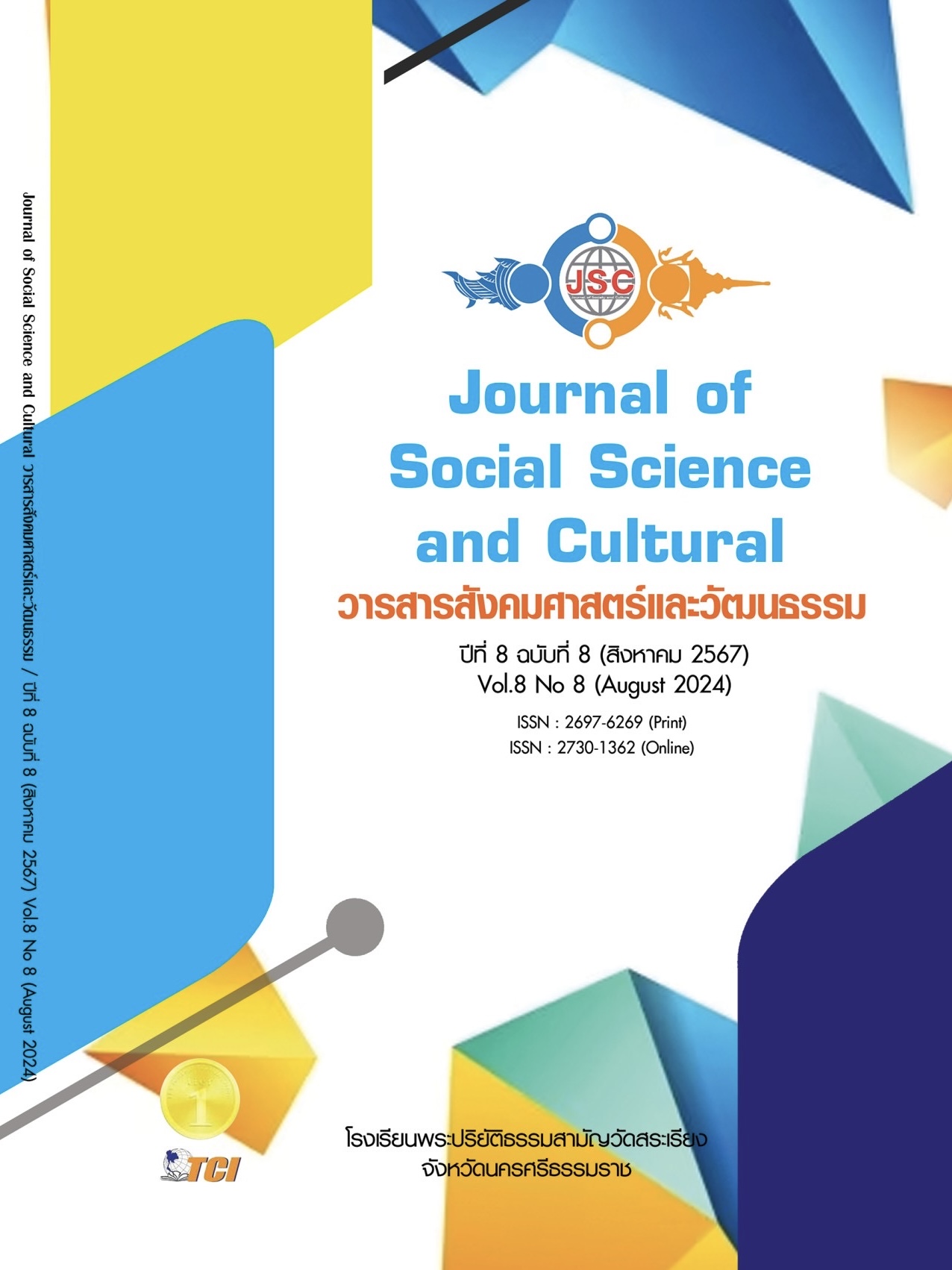SOCIAL IMPACT ASSESSMENT PROJECT ON CHOLANGIOCARCINOMA SCREENING AND CARE PROGRAM
Main Article Content
Abstract
The objectives of this research were to 1) Evaluate the economic, social, and institutional impacts of the liver fluke and cholangiocarcinoma problem-solving project. 2) To demonstrate the value, cost-effectiveness, and utility derived from the utilization of research outputs. The study population consisted of individuals registered for liver fluke screening, residing in Kalasin Khon Kaen Maha Sarakham, and Roi Et provinces aged 40 years and above. The sample size was determined using a ready-made table, resulting in 752 participants. Utility measurement tools included the direct method Visual Analog Scale (VAS) and the indirect method EuroQoL (5Q-5D-5L). The value of willingness to pay was measured using the bidding method. The results showed that the mean VAS score was 76.90 (SD = 14.33) and the 5-dimension health status (5Q-5D-5L) indicated only slight discomfort. The calculated utility value reflecting daily quality of life was 0.89 (SD = 0.11). For abdominal ultrasound examination the values were not significantly different 77.12 (SD = 14.15) and 0.89 (SD = 0.109). The average willingness to pay for the rapid test kit was 187 baht per test, while for abdominal ultrasound it was 796 baht per examination. Reasons for unwillingness to pay included prices higher than personal willingness to pay due to limitations. It was suggested that these should be provided as basic rights in accessing health services for the benefit of the public. Stakeholders unanimously agreed that the project would benefit the public economically socially and culturally as well as institutionally. If the Ministry of Public Health and related agencies promote its genuine utilization both in policy and practice, it would maximize benefits to the public.
Article Details
References
กฤตภาส กังวานรัตนกุล. (2563). การวัดค่าอรรถประโยชน์. ใน วิทยานิพนธ์ศูนย์การศึกษาต่อเนื่องทางเภสัชศาสตร์ สาขาเภสัชศาสตร์. มหาวิทยาลัยบูรพา.
กัมปนาท วิจิตรศรีกมล. (2564). การประเมินผลกระทบจากงานวิจัยและพัฒนาหลักการเบื้องต้นและแนวทางปฏิบัติ. กรุงเทพมหานคร: สถาบันคลังสมองของชาติ.
จิตราภรณ์ วงศ์วิวัฒน์ไชย. (18 พ.ค. 2566). หัวข้อ อรรถประโยชน์ของโครงการฯ. (ธนพฤกษ์ ชามะรัมย์, ผู้สัมภาษณ์)
ชวนพิศ สุนีย์. (10 พ.ค. 2566). หัวข้อ อรรถประโยชน์ของโครงการฯ. (ธนพฤกษ์ ชามะรัมย์, ผู้สัมภาษณ์)
ณรงค์ ขันตีแก้ว. (2564). โรคมะเร็งท่อน้ำดีในประเทศไทย. สถาบันวิจัยมะเร็งท่อน้ำดี. ขอนแก่น: โรงพิมพ์คลังนานาวิทยา.
วัชรินทร์ ลอยลม. (17 พ.ค. 2566). หัวข้อ อรรถประโยชน์ของโครงการฯ. (ธนพฤกษ์ ชามะรัมย์, ผู้สัมภาษณ์) พ.ค. : 17 .
สุปราณี วรพันธุ์. (14 พ.ค. 2566). หัวข้อ อรรถประโยชน์ของโครงการฯ. (ธนพฤกษ์ ชามะรัมย์, ผู้สัมภาษณ์)
อรรถพล ติตะปัญ. (17 พ.ค. 2566). หัวข้อ อรรถประโยชน์ของโครงการฯ. (ธนพฤกษ์ ชามะรัมย์, ผู้สัมภาษณ์)
Alsaleh. M., et al. (2019). haracterisation of the Urinary Metabolic Profile ofLiver Fluke Associated Cholangiocarcinoma. Journal Of Clinical And Experimental Hepatology, 9(6), 657- 675.
Friese, S. (2019). Qualitative data analysis with ATLAS.ti (3rd ed.). New York: The SAGE Publications Ltd.
Worasith, C., et al. (2020). Application of urine antigen assay to evaluate outcomes of praziquantel treatment and reinfection in opisthorchiasis in northeast Thailand. Transactions of the Royal Society of Tropical Medicine and Hygiene, 114(10), 751-761.


